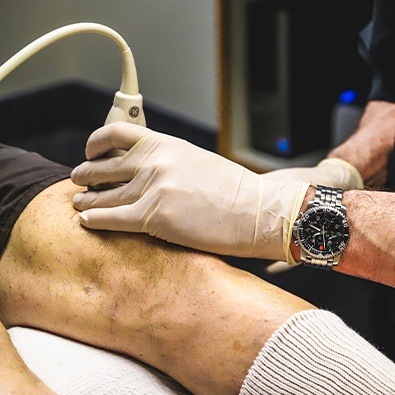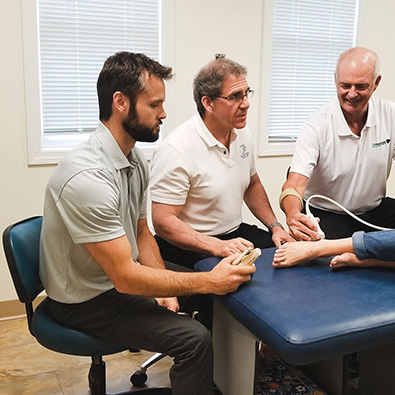
Fax: (860) 430-9693
Glastonbury, CT 06033

If you have suffered a sports injury, you may be wondering where you can receive the best treatment. Here at Valley Sports Physicians & Orthopedic Medicine & Orthopedic Medicine, we serve patients from throughout New England and even from across the country. If you are suffering from problems such as Achilles tendon injuries, bursitis, cartilage injuries, golfer’s elbow, knee injuries or any other sports-related issues, we can help you with our non-surgical treatment methods. Read on to understand more about sports medicine in general, our physicians and our doctors’ osteopathic approach to sports medicine in Glastonbury, CT.

Sports medicine is a branch of the healing arts profession that utilizes an integrated, comprehensive approach to the prevention, diagnosis, and management of sport- and exercise-related injuries, disorders, dysfunctions, and disease processes.
Yet sports medicine is more than just physical therapy, a knee brace, a cortisone injection, or arthroscopic surgery. While all of these may be important, sports medicine involves knowing not only the athlete but also the sport. What are the demands placed on the athlete’s body by a given sport? What specific skills are required to perform a sport? And how does the body respond to these demands and required skills? Knowing this is crucial to understanding not only how injuries occur but also to know what the best way to treat them is.

The field of sports medicine consists of health care providers who work in synchrony to provide a “team approach” to achieve better health for the patient. At the head of this team of professionals is the physician who diagnoses the condition and directs the treatment plan.
Any doctor can claim to do “sports medicine,” but only physicians specially trained in sports medicine are uniquely qualified truly to practice sports medicine.
In addition, you would also want a physician who is an active member of one of the large national sports medicine organizations. These include:

Dr. Tortland and our Glastonbury sports medicine team are ready to help you get moving! Before you entrust us with your care, though, you may have questions about sports medicine and what you can expect when you visit us. Below, you will find answers to some common questions about this approach to medicine. If your questions are not addressed here, give us a call; we will be happy to speak with you.
Sports medicine is helpful for a wide range of patients. It is often used to help professional athletes as well as those who enjoy activities like casual sports, running, and more. It can help patients of virtually any age, from student athletes to active seniors. Really, anyone who is concerned about preventing or treating movement-related injuries and conditions may be a good candidate for sports medicine.
Sports medicine is not officially considered to be a medical specialty. Any doctor can claim to practice sports medicine, and many sports medicine physicians have extensive training in other areas as well. Doctors who practice sports medicine may take vastly different approaches to care, so it is always a good idea to ask a lot of questions and do thorough research before you entrust your health to any particular doctor.
Generally speaking, sports medicine physicians strive to find conservative, noninvasive (or minimally invasive) ways to help patients heal. In many cases, they are successful. Their patients can avoid the discomfort and lengthy recovery time that accompany surgery.
A sports medicine surgeon, also known as a sports medicine orthopedic surgeon, often performs surgical procedures to treat severe injuries and other musculoskeletal conditions. Surgeons often work closely with sports medicine orthopedic physicians in order to make sure that patients receive high-quality care for whatever issues they are dealing with.
Some orthopedic conditions that a sports medicine doctor may commonly deal with include:
If you aren’t sure if sports medicine is right for you, give us a call. We will do our best to guide you in the right direction.
You can reduce your risk of injury by: